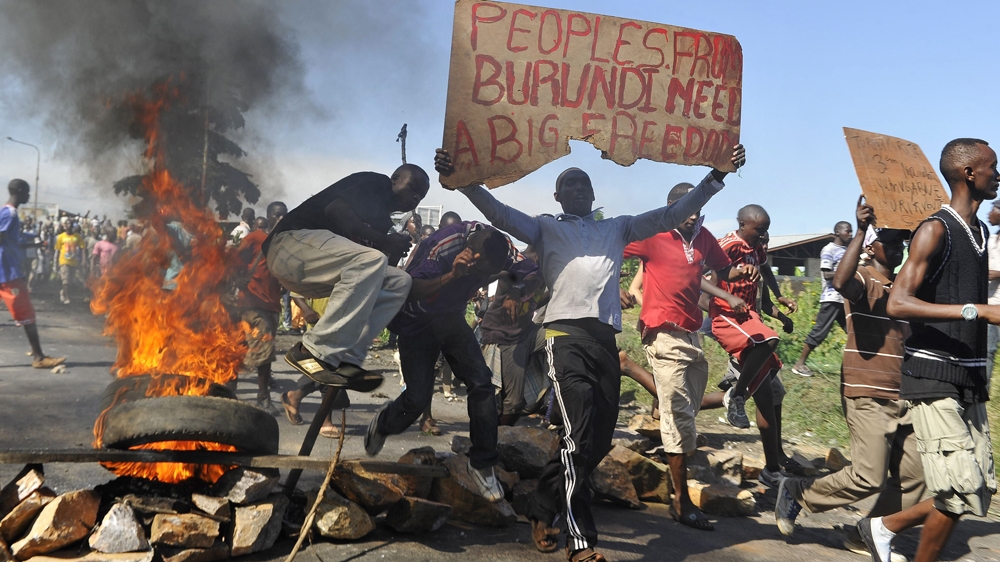by Drew Povey
Turmoil continues to grip Burundi as we go to press, nearly seven months after President Pierre Nkurunziza announced he would seek a controversial third term. Gunfire and grenades can be heard almost every night, and in the morning, bodies are often discovered on the streets.
About 200 people have been killed since the protests started in April. Hundreds have been thrown into prison and thousands have fled the country. But the president again won the presidential elections in July.
In the early 1990s Africa exploded in a convulsion of pro-democracy revolts that saw eighty-six major protest movements across thirty countries in 1991 alone. As a result, multi-party elections were introduced in many countries with constitutions with limits of two terms for their presidents (as in Nigeria from 1999).
However, many of these presidents are now struggling to stay in power. This was clearly defeated late last year when mass revolts removed the president of 27 years in Burkina Faso. In other countries the struggle continues. These include, for example, Joseph Kabila in the Democratic Republic of Congo and Sassou N’Guesso in Congo Brazzaville. The presidents of Chad and Cameroon have also clung on to power for many years.
Since April of this year there have been regular mass protests in Burundi, a small East African State of only 10 million people. The reason was the announcement in April by the sitting President to stand for a third term – in clear contravention of the constitution. But also the economic problems that the mass of people suffer. Below the surface, the protests are fuelled by an intense frustration shared by many of Bujumbura’s youth stemming from high unemployment and a pervasive sense of hopelessness in what is one of the world’s poorest countries.
Alain, a protester, unemployed despite a degree in economics, explained: “Those who studied economics are in the street, while those who studied law are economic advisors,” expressing a common sentiment that personal connections matter more than merit. Students also lament the lack of technical training at universities, where courses tend to be heavily theoretical and out of touch with the job market.
In early May there was an attempted military coup with heavy gunfire in the capital Bujumbura. At least 50,000 civilians fled the country. The President managed to ride out the coup and went on to be re-elected to a third term with 70% of the vote in July.
Critics say the third-term of Nkurunziza violates the terms of the 2000 Arusha agreement. This ended a 12-year civil war and stipulated that Burundi’s president should serve no more than two terms. Around 300,000 were estimated to have died in the civil war.
In Burundi, as in many other African countries, economic growth has not benefited the mass of the population. Poverty has continued, as has huge inequality, unemployment and lack of access to decent education and health services. At the same time, the corrupt political elite go to extreme lengths to hold on to their power and wealth. Arbitrary arrests, extrajudicial killings, and speeches of hate from political leaders have generated fears of mass violence – and the threat of a return to civil war. But in the end, as Burkina Faso showed last year, mass protests can remove even the most powerful presidents.









